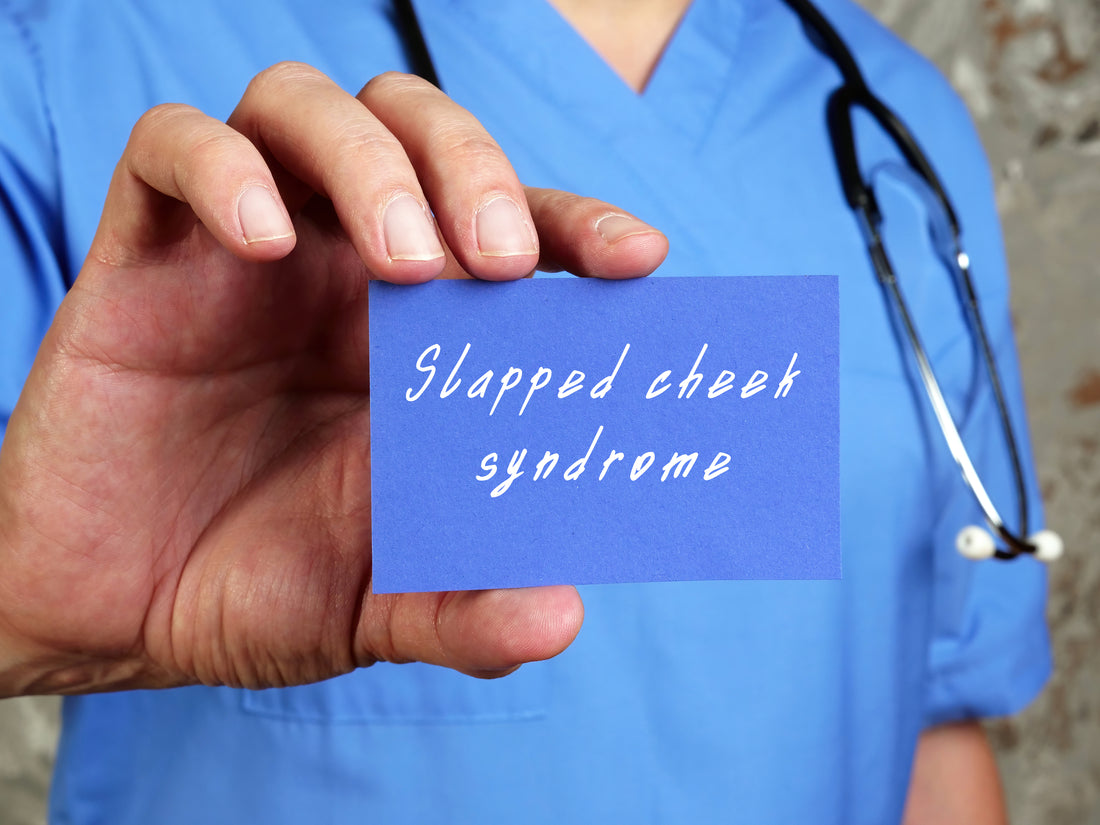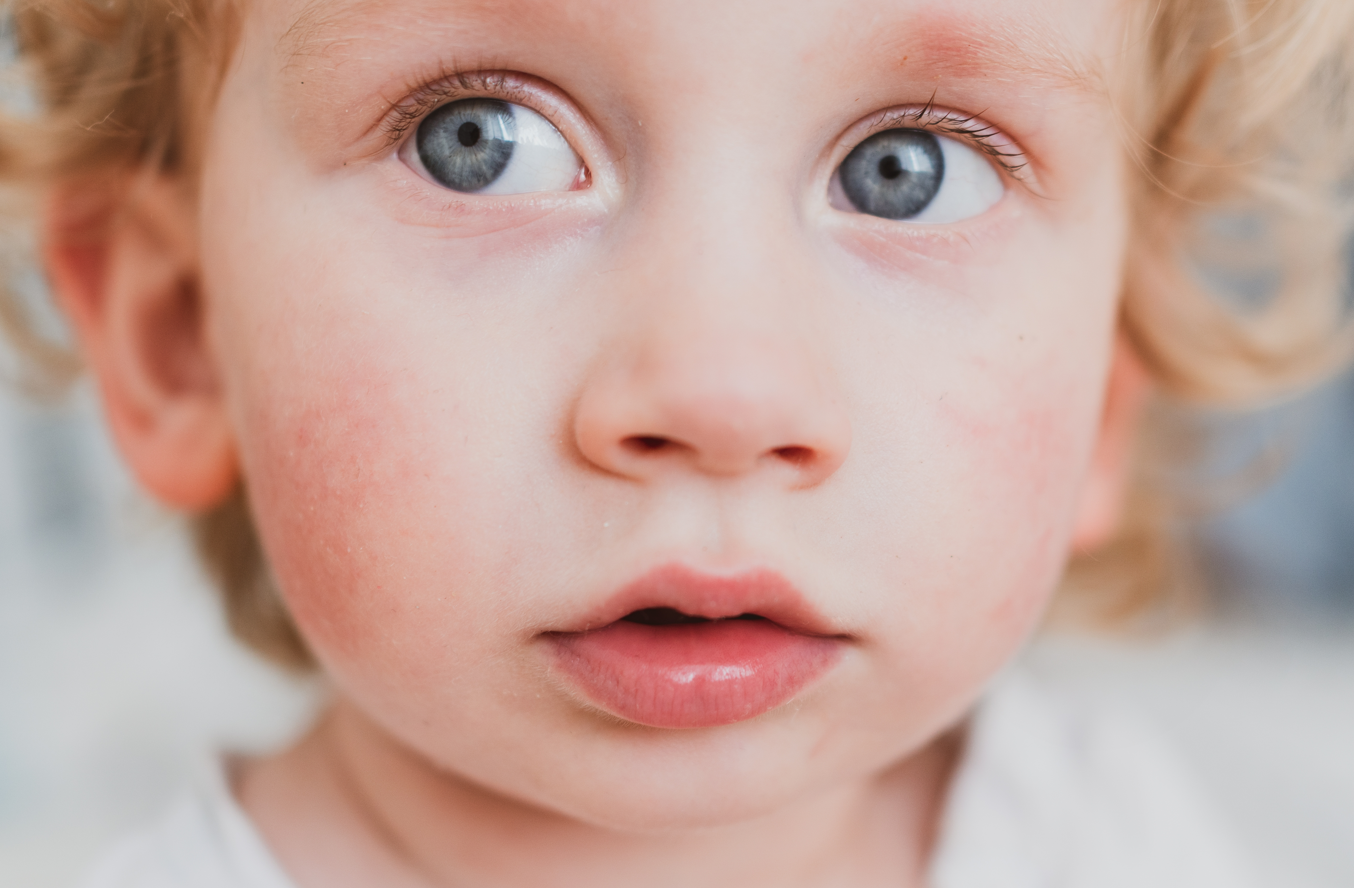
What Is Slapped Cheek Syndrome?
Share
You might love your baby's rosy cheeks, but be aware of what can cause the rosiness sometimes!
Slapped cheek syndrome (also known as Fifth disease or Parvovirus infection) is a highly communicable viral infection that usually affects babies and young children.
It gets its name from the characteristic red rash that appears on the cheeks, which makes it look like someone has slapped the child.
The virus that causes slapped cheek syndrome in infants is called parvovirus B19.
Let's take a look at the symptoms, duration, and treatment of the slapped cheek syndrome.
Slapped Cheek Syndrome Symptoms

Most children with slapped cheek syndrome will have no symptoms other than the characteristic raised rashes, which might appear on other parts of the body as well.
However, some children may also have a fever, runny nose, upset stomach, or sore throat before the rash appears. This particular viral infection is more common in winter and spring.
If your child has slapped cheek syndrome, it's important to keep them away from school, daycare, and/or public spaces until the rash goes away to prevent spreading the virus. The virus spreads through infected droplets that can be found on surfaces and in coughing and sneezing.
Once the rash appears, your child is no longer contagious and can return to their normal activities. Basically, the rash appears towards the end of the infection's duration (and around a week after the other flu-like symptoms) and is a sign that the disease is on its way out.
Slapped Cheek Syndrome Duration and Treatment
Fifth disease is usually not serious and will go away on its own within three weeks or so. There is no specific treatment for the virus, but you can help your child feel more comfortable by encouraging them to drink plenty of fluids.
If your baby has slapped cheek syndrome, continue to feed them as usual and make sure they don't get dehydrated. If your baby has a high fever, you can reach out to a doctor to get some fever medications.
Maintain a high level of hygiene and make sure your child doesn't scratch the rashes! If your child is feeling itchy, you can apply a kid-friendly moisturizer that can soothe their irritated skin; it's best to choose an organic and natural lotion or moisturizer that doesn't have any added fragrances or harsh chemicals.
If you think your child may have slapped cheek syndrome, contact your doctor for an evaluation. In most cases, there is very little long-term risk to the child's health. In fact, slapped cheek syndrome in adults is considered to be more serious than in kids.
Just monitor your kid's symptoms carefully and make sure they are well fed and comfortable.
